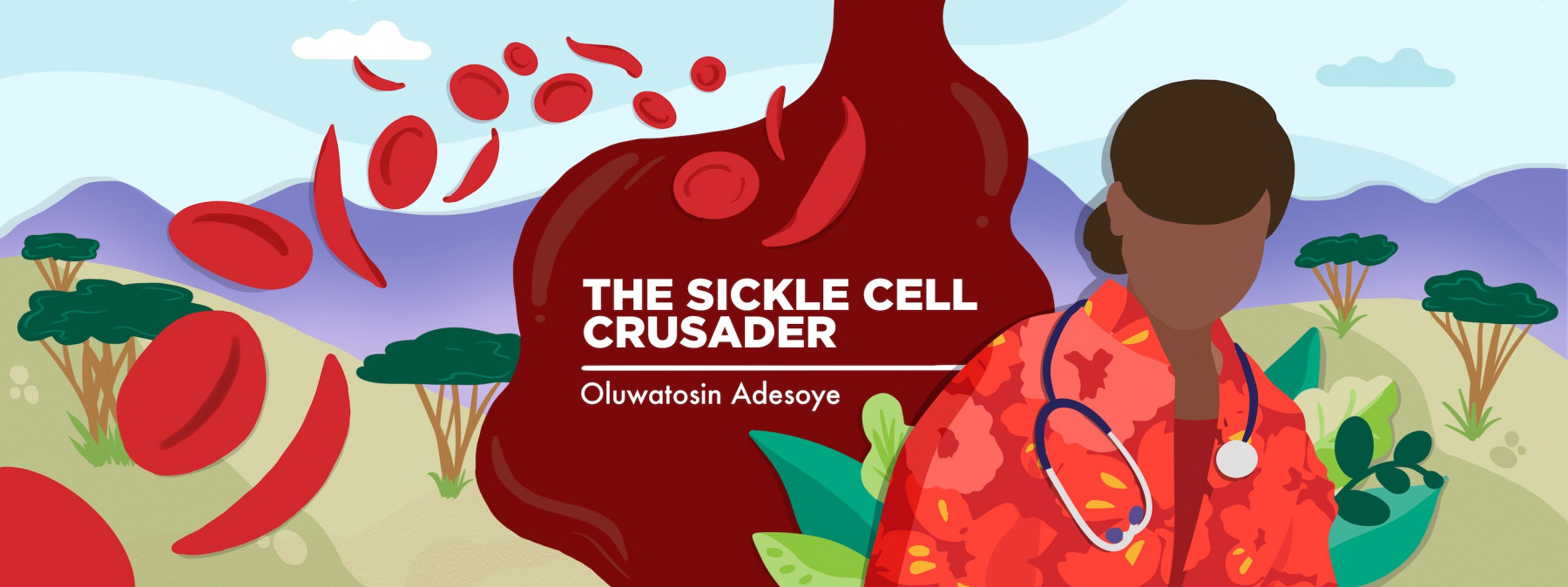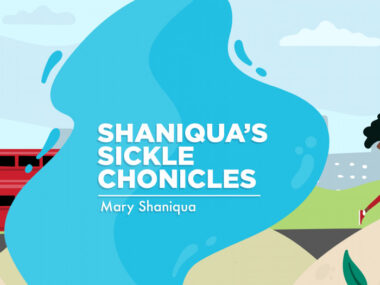How ‘sickler’ perpetuates harmful stigmas about sickle cell warriors
In my experience, the term stems from deep-seated prejudices
Written by |

Sickle cell disease doesn’t only affect people physically; it can also result in social stigma, which occurs in schools, workplaces, healthcare settings, and even within families.
At the core of sickle cell stigma lies the term “sickler.” While the word can be used simply to refer to people living with sickle cell disease, in many instances, it’s been misappropriated and weaponized, particularly in my country, Nigeria. Its implications stretch far beyond a mere label. It embodies a history of misconceptions, discrimination, and stigma that we, as sickle cell patients, have to navigate daily.
Growing up, I witnessed firsthand how the word was used against people with sickle cell disease. Phrases such as “you look like a sickler” or “you walk like a sickler” were commonly hurled as insults, perpetuating harmful stereotypes and reinforcing patients’ marginalization. This word should be neutral ideally, but it’s used pejoratively in ways that the terms “sickle cell patient” or “person with sickle cell disease” are not.
Many sickle cell patients have been unjustly restricted from participating in everyday activities and subjected to verbal abuse simply because they’re perceived as sicklers. In my experience, statements such as “You’re a sickler, so don’t involve yourself in arguments because the other person will beat you up” and “Even if your partner mistreats you, he’s doing you a favor by dating a sickler like you” are not uncommon. They highlight deep-seated prejudices and discrimination that exist within society.
The root of the term’s misuse lies in widespread ignorance about its meaning. In my country, many people erroneously believe it refers to those who fall ill frequently. This misconception is flawed, as not everyone with sickle cell disease experiences frequent bouts of illness. Even for those with severe forms of the condition who do face frequent health challenges, it’s unjust to stigmatize them by labeling them as sicklers.
Other contributing factors to the term’s stigmatization are the physical characteristics some patients exhibit, known as sickle cell habitus. They make some patients easily recognizable, leading to instances where those with sickle cell are singled out and labeled as sicklers without any prior interaction.
It’s important to note that not all sickle cell patients conform to these physical features. Even when some do, it’s unacceptable for anyone to stigmatize them based on their health attributes. After all, these features can exist in people who aren’t sickle cell patients, as well.
Prioritizing patients’ wishes
Reactions to being labeled a sickler vary among patients, with many finding it deeply offensive. Others, by contrast, are indifferent or accepting of the term. After a clinical presentation that I led on sickle cell disease, I was asked why the term rubs me and many other sickle cell patients the wrong way. Perhaps my aversion to the word stems from its misinterpretation or misuse.
Personally, being referred to as a sickler has a detrimental impact on my mental well-being. It’s a constant reminder of the obstacles I encounter in being recognized for my true self. It makes me feel as though I’m defined solely by my illness, which is far from the truth. When people use the term sickler as an insult, it reflects poorly on them, not on me.
I prefer terms like sickle cell warrior, which I find empowering and uplifting. “Warrior” conveys the message that I courageously battle my condition each day, instilling a sense of positivity and determination in the face of adversity.
While I appreciate the term sickle cell warriors, I value when people use my given name above all. Every sickle cell patient has a unique identity, and it’s important to address us by our names rather than by our medical condition. If there’s a need to reference our condition, such as in a healthcare setting, it’s crucial to use terms we patients are comfortable with and to prioritize and respect our dignity and mental well-being.
The stigmatization of sickler is a stark reminder of the challenges faced by people with sickle cell disease. We can work to dismantle the barriers perpetuating stigma and discrimination by promoting greater understanding, empathy, and advocacy. Together, let’s create a world where sickle cell warriors are embraced for their resilience, strength, and humanity.
Note: Sickle Cell Disease News is strictly a news and information website about the disease. It does not provide medical advice, diagnosis, or treatment. This content is not intended to be a substitute for professional medical advice, diagnosis, or treatment. Always seek the advice of your physician or other qualified health provider with any questions you may have regarding a medical condition. Never disregard professional medical advice or delay in seeking it because of something you have read on this website. The opinions expressed in this column are not those of Sickle Cell Disease News or its parent company, Bionews, and are intended to spark discussion about issues pertaining to sickle cell disease.



Leave a comment
Fill in the required fields to post. Your email address will not be published.